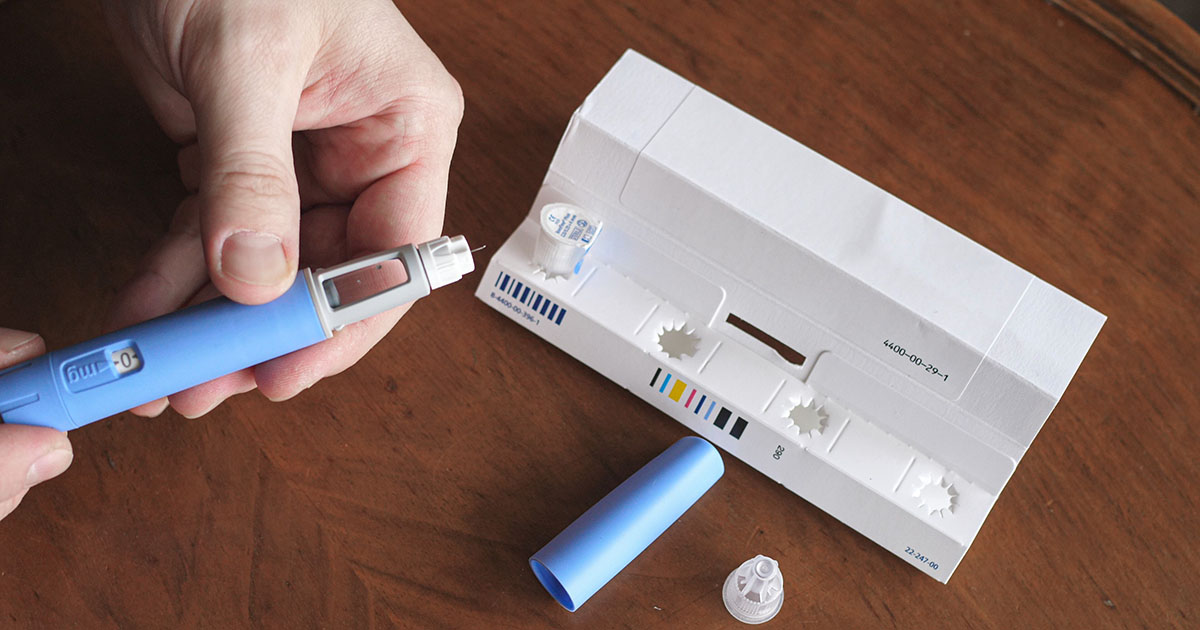Ozempic and Mounjaro diabetes medications: Should they be prescribed for weight loss?

The media have been shining a light on people using various medications for weight loss previously used only for patients with Type 2 diabetes. Several of these types of drugs have also been approved for weight loss in adults with obesity by the U.S. Food and Drug Administration.
Several celebrities have also been promoting their use for weight loss on social media, causing a stir about those who don’t seem to have much weight to lose.
The shortage created by the increased use for weight loss is causing concern for some patients with Type 2 diabetes. Those who can’t get their medication have to switch to alternative treatments.
Here we’ll look at medications that have versions approved for weight loss and diabetes, how they work and more.
Diabetes-type medications used for weight loss
Despite the chatter online, obesity is a legitimate medical diagnosis. When appropriately medically supervised, medications can potentially help people with this diagnosis to lose weight.
Here are three things to know about medication types and their use.
1. Semaglutide (also known as Ozempic and Wegovy)
Studies have shown sustained, clinically relevant reduction in body weight with semaglutide, a GLP1 (glucagon-like peptide-1) receptor agonist-type medication. An agonist is a chemical that activates a receptor to produce a biological response.
- FDA-approved as Ozempic for diabetes
- FDA-approved as Wegovy for weight loss
- Both Ozempic and Wegovy are given by injection
- There are differences in the type of injection pen, inactive ingredients and the maximum labeled dosages
2. Tirzepatide (aka Mounjaro) Tirzepatide combines GLP1 and GIP (gastric inhibitory polypeptide, also known as a glucose-dependent insulinotropic polypeptide) receptor activation. Studies show a substantial and sustained reduction in body weight with use.
- FDA approved as Mounjaro for diabetes
- Published studies have looked at Mounjaro for weight loss in those without diabetes. It is under FDA review but is not yet FDA-approved for weight loss
3. Mounjaro, Ozempic and Wegovy are relatively new medications.
- Mounjaro just received FDA approval for diabetes in 2022
- All three are once-a-week injections
- Mounjaro and Ozempic are FDA-approved to treat diabetes, but obesity medicine experts and primary care doctors are prescribing them off-label to help people lose weight
How do they work for weight loss?
There are GLP1 receptors in various areas of the body, including the brain, that are involved in the regulation of appetite. When these receptors are activated, they can help decrease appetite, help people feel full faster and ultimately reduce calorie intake.
Additional actions of GLP1 receptor agonists help with blood sugar control in diabetes.
“Studies show that these medications can help people lose amounts of weight significantly greater than other medications that are FDA approved for weight loss.” says Brianna Johnson-Rabbett, MD, Nebraska Medicine endocrinologist, diabetes and metabolism specialist. “Data shows that Mounjaro can reduce body weight by over 20% on average, and Wegovy can reduce body weight by over 14% on average. However, it is important to note that in clinical practice, in an individual patient, we can see significantly less or more weight loss than averages from clinical studies.”
Risks and side effects
Be sure to talk with your doctor to determine if these medications are right for you.
Based on animal studies, there is a boxed warning for all the GLP1R agonists regarding the risk of thyroid C cell tumors. The corresponding risk to humans is not clear.
Side effects may vary from person to person and from one medication to another. The most common side effects are gastrointestinal and include:
- Nausea
- Vomiting
- Diarrhea
- Constipation
- Abdominal pain
Gastrointestinal symptoms may wane over time. If your doctor prescribes one of these medications, they can work with you to adjust how you eat to help reduce potential side effects.
Am I a good candidate?
- Generally, you may qualify for consideration if:
- You have a body mass index (BMI) of 30 or above
- You have a BMI of 27 or above with weight-related medical conditions
- You do not have a condition that would prevent safe use
- You are engaged in attempting to reach a healthier weight
Those who don’t meet the criteria include those with:
- A personal or family history of medullary thyroid carcinoma
- A personal history of multiple endocrine neoplasia
- Pancreatitis (relative contraindication)
What you need to know about the cost of weight-loss medications
Unfortunately, navigating the financial investment can be tricky. Without insurance, these medications can be very costly, costing around $1,000 per month.
Insurance may or may not cover diabetes medication for weight loss.
- Many insurance plans do not cover these medications to treat people with obesity, leading to off-label use of drugs that are FDA-approved for other conditions
- Some insurance companies may cover them without prior authorization, while others will not
- Some insurance companies require a diagnosis of Type 2 diabetes for coverage
Be wary of those offering “compounded semaglutide.”
“There are entities offering what they describe as ‘compounded semaglutide medications,” adds Dr. Johnson-Rabbett. “This is problematic for many reasons, including patent violations and lack of relevant quality and safety data.”
Always consult with your doctor about any medication you are considering. They can help you determine the healthiest choice for you.





